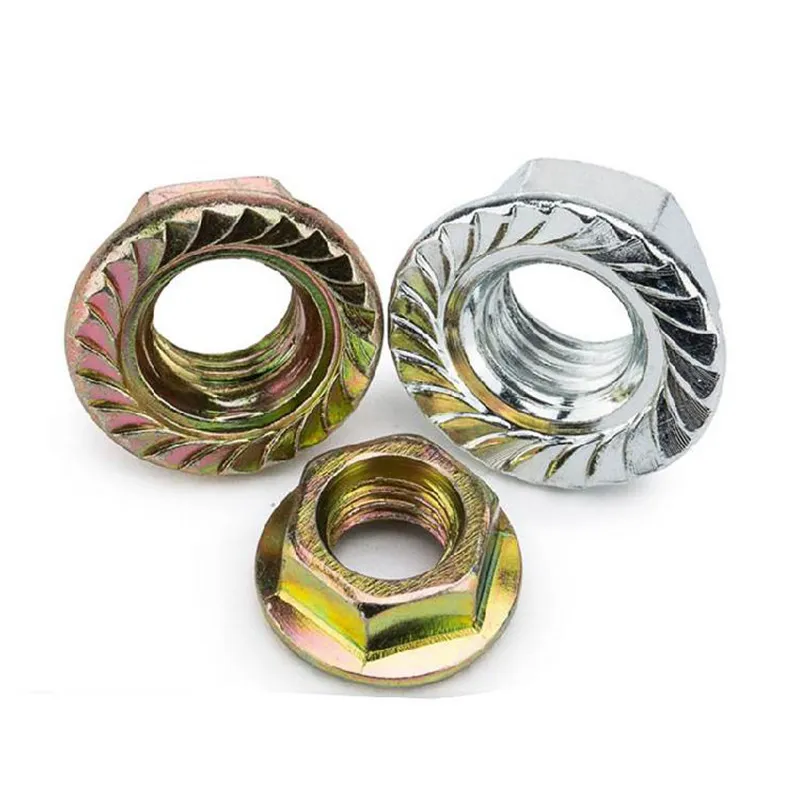

self drilling screws countersunk
Nov . 20, 2024 16:17 Back to list
self drilling screws countersunk
Self-Drilling Screws The Advantages of Countersunk Design
Self-drilling screws have revolutionized the fastener industry, offering convenience and efficiency in various applications. Among the different types of self-drilling screws available in the market, countersunk screws play an essential role, particularly in projects that require a smooth and flush finish. This article will delve into the benefits and applications of self-drilling countersunk screws, shedding light on why they are a favored choice among builders and engineers.
What are Self-Drilling Screws?
Self-drilling screws, often referred to as Tek screws, are specialized fasteners equipped with a drill point that allows them to create their own hole as they are driven into materials. This design eliminates the need for pre-drilling, saving both time and effort, making them ideal for a variety of construction and fabrication tasks. Self-drilling screws are commonly used in metal-to-metal or metal-to-wood applications, offering strong and reliable connections.
Understanding Countersunk Screws
Countersunk screws are designed with a conical head that allows them to sit flush with the surface of the material. This feature is particularly important in applications where a level surface is needed, such as in decorative projects, woodworking, and when using materials that require aesthetics to be considered. Countersunk heads enable a cleaner and more professional finish, making them a popular choice in both commercial and residential construction.
Advantages of Self-Drilling Countersunk Screws
1. Time Efficiency The primary advantage of self-drilling countersunk screws is the amount of time they save. Traditional fastening methods often require multiple steps, including drilling pilot holes. With self-drilling screws, the process is streamlined; a single screw performs both the drilling and fastening functions, significantly reducing project timelines.
2. Enhanced Aesthetics The flush finish provided by countersunk screws is not just about looks; it also reduces the risk of snagging or injury from protruding screw heads. This design is particularly important in applications such as cabinetry, furniture making, and external cladding where appearance matters.
self drilling screws countersunk

3. Improved Structural Integrity The conical shape of countersunk screws helps distribute load more evenly and enhances holding power by allowing the screw to exert force on the material in a manner that minimizes the risk of damage or splitting. This results in a more secure and stable connection, which is crucial in structural applications.
4. Versatility Self-drilling countersunk screws can be used with a variety of materials, including wood, metal, and plastics, making them a versatile choice for builders and manufacturers. Their ability to adapt to different substrates while providing a robust connection is a major advantage in a diverse range of projects.
5. Reduced Material Fatigue The process of traditional fastening can sometimes induce stress in materials, leading to fatigue over time. The self-drilling capability of these screws minimizes such issues as there’s no need for pilot holes, which can weaken or compromise the integrity of the materials involved.
6. Ease of Use Even for DIY enthusiasts, self-drilling countersunk screws are user-friendly. With a simple power drill or screwdriver, these screws can be quickly driven into the material, making them accessible to people with varying levels of experience in construction and repairs.
Common Applications
Self-drilling countersunk screws are used in numerous applications, including
- Roofing They are often employed in the installation of metal roofing sheets and siding, where a flush finish and waterproof seal are essential. - Automotive Industry These screws are commonly used in the assembly of vehicles for both structural and aesthetic purposes. - Furniture Assembly Many furniture pieces use self-drilling countersunk screws to ensure clean lines and stability. - Electrical Conduit and HVAC In these settings, a flush finish helps maintain clean and safe environments.
Conclusion
Self-drilling countersunk screws offer a host of benefits that make them an invaluable tool for construction and manufacturing. Their ability to streamline the installation process while ensuring a clean finish is unmatched, making them a preferred choice for professionals and DIYers alike. As construction techniques continue to evolve, the demand for efficient and aesthetically pleasing fasteners like self-drilling countersunk screws is likely to remain strong, paving the way for innovative designs and applications in the future.
Latest news
-
High-Strength Hot-Dip Galvanized Bolts-Hebei Longze|Corrosion Resistance&High Strength
NewsJul.30,2025
-
Hot Dip Galvanized Bolts-Hebei Longze|Corrosion Resistance&High Strength
NewsJul.30,2025
-
Hot Dip Galvanized Bolts - Hebei Longze | Corrosion Resistance, High Strength
NewsJul.30,2025
-
High-Strength Hot Dip Galvanized Bolts-Hebei Longze|Corrosion Resistance, Grade 8.8
NewsJul.30,2025
-
Hot Dip Galvanized Bolts-Hebei Longze|Corrosion Resistance,High Strength
NewsJul.29,2025
-
High-Strength Hot Dip Galvanized Bolts - Hebei Longze Metal Products Manufacturing Co., Ltd.|corrosion resistance&high strength
NewsJul.29,2025

